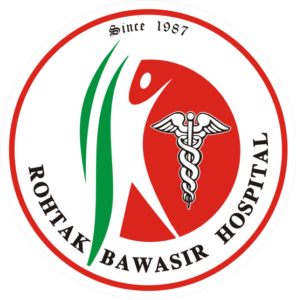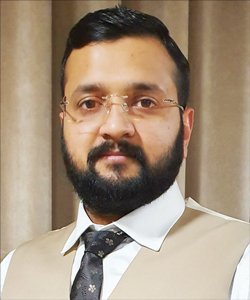How to Cure Piles at the First Stage?


Updated on: 4th Jun 2024
Summary
Piles, also known as hemorrhoids, can be a painful and uncomfortable condition. However, when detected early, they can often be treated effectively with simple measures and lifestyle changes. At Rohtak Bawasir Hospital, we specialize in providing comprehensive care for piles and other anorectal disorders. In this blog, we’ll share some practical tips on how to cure piles at the first stage.
Understanding Piles
Piles are swollen veins in the lower part of the rectum and anus. They can cause discomfort, itching, pain, and bleeding during bowel movements. There are two types of piles: internal and external. Internal piles are located inside the rectum, while external piles are under the skin around the anus.
Early Symptoms of Piles
Recognizing the early symptoms of piles is crucial for timely treatment. Common early signs include:
- Itching or irritation around the anus
- Discomfort or pain during bowel movements
- Small amounts of bright red blood on toilet tissue or in the toilet bowl
- A feeling of incomplete evacuation after a bowel movement
Tips to Cure Piles at the First Stage

1. Increase Fiber Intake:
- A high-fiber diet helps soften stools and reduce straining during bowel movements. Include foods such as fruits, vegetables, whole grains, and legumes in your diet.
- Consider taking a fiber supplement if you’re unable to get enough fiber from your diet.
2. Stay Hydrated:
- Drink plenty of water throughout the day to help prevent constipation and ease bowel movements.
- Aim for at least 8-10 glasses of water daily.
3. Practice Good Bathroom Habits
- Avoid straining during bowel movements, as this can worsen piles.
- Go to the bathroom as soon as you feel the urge to have a bowel movement. Delaying can cause stools to become harder and more difficult to pass.
4. Exercise Regularly
- Regular physical activity can help stimulate bowel function and reduce pressure on veins, preventing the formation of piles.
- Aim for at least 30 minutes of moderate exercise, such as walking or swimming, most days of the week.
5. Use Over-the-Counter Treatments
- Over-the-counter creams, ointments, and suppositories can provide relief from symptoms like itching and pain. Look for products containing hydrocortisone or witch hazel.
- Use these treatments as directed by the product instructions or your healthcare provider.
6. Sitz Baths
- Sitting in warm water for 10-15 minutes several times a day, especially after bowel movements, can help reduce swelling and discomfort.
- Use a sitz bath, a small plastic tub that fits over the toilet seat, or simply sit in a bathtub filled with a few inches of warm water.
7. Maintain Good Anal Hygiene
- Gently clean the anal area with water after each bowel movement. Avoid using dry toilet paper, which can be abrasive. Instead, use moist towelettes or wet wipes.
- Pat the area dry with a soft cloth instead of rubbing.
When to Seek Medical Help

While these tips can be effective for managing early-stage piles, it’s important to seek medical advice if:
- Symptoms persist or worsen despite home treatment.
- You experience significant pain or bleeding.
- You notice a lump near the anus that is painful or doesn’t go away.
At Rohtak Bawasir Hospital, our experienced team of specialists is dedicated to providing personalized care for piles and other anorectal conditions. We offer a range of treatment options, from conservative management to minimally invasive procedures, ensuring the best possible outcomes for our patients.
Conclusion
Curing piles at the first stage involves a combination of dietary changes, good bathroom habits, and over-the-counter treatments. By following these tips and seeking medical advice when necessary, you can effectively manage and cure early-stage piles. If you have any concerns or need professional help, don’t hesitate to contact Rohtak Bawasir Hospital for expert care and guidance.
For more information or to schedule an appointment, visit our website or call us at 74192-00009. Your health and comfort are our top priorities.
Meet Our Specialists

Dr. Raj Kumar Garg (B.A.M.S.)
40+ Years of Experience

Dr. Rahul Garg (B.A.M.S.)
15+ Years of Experience

